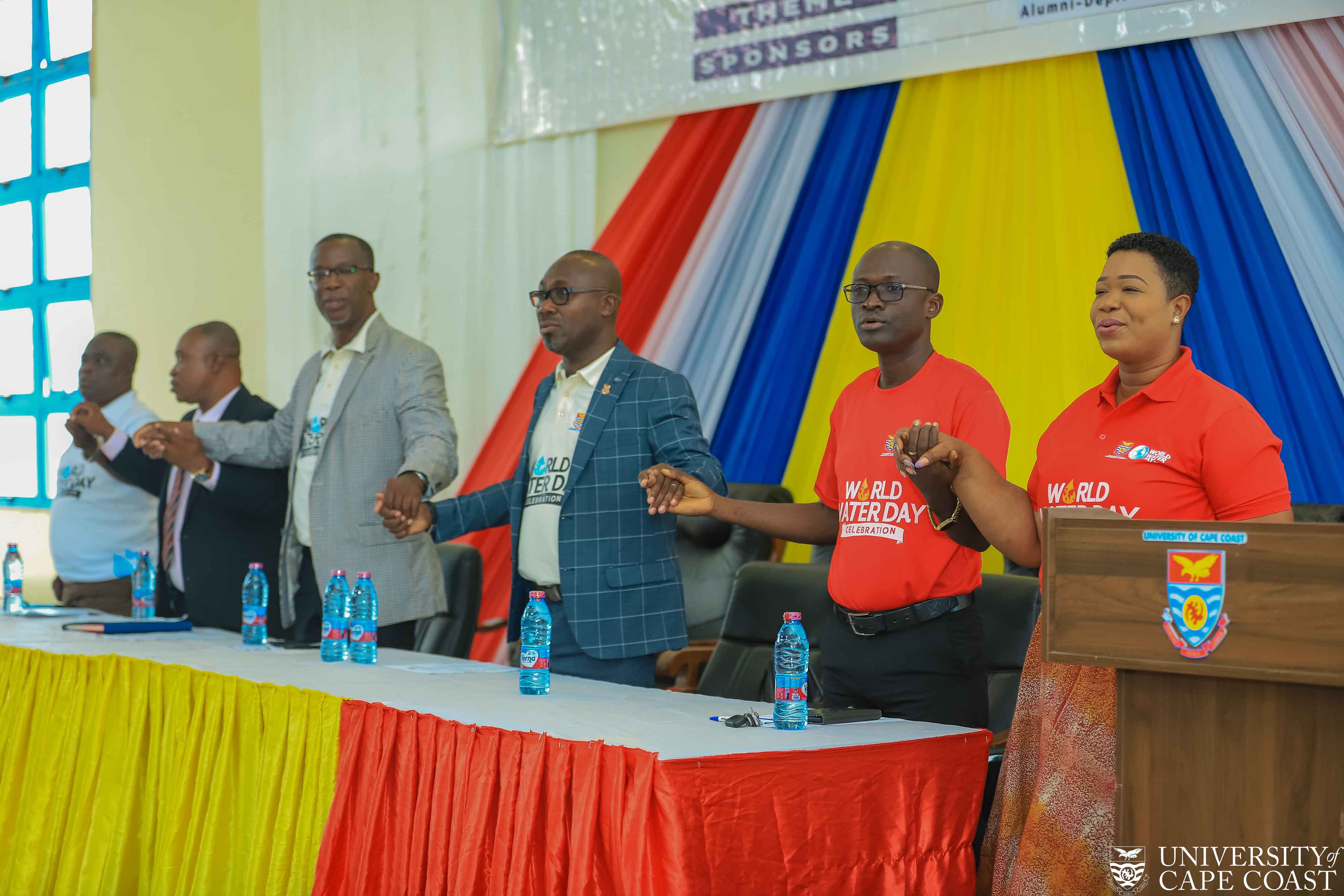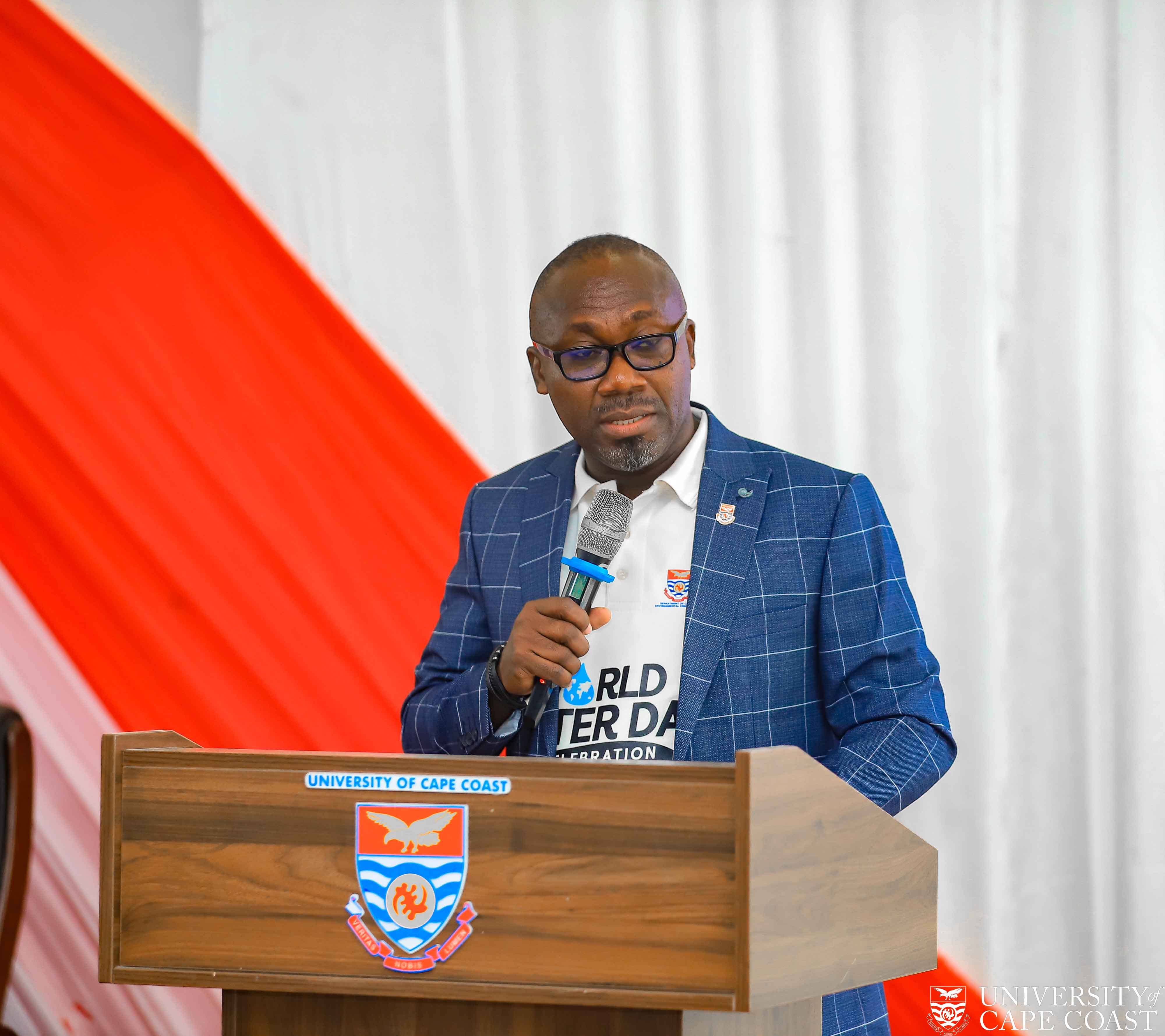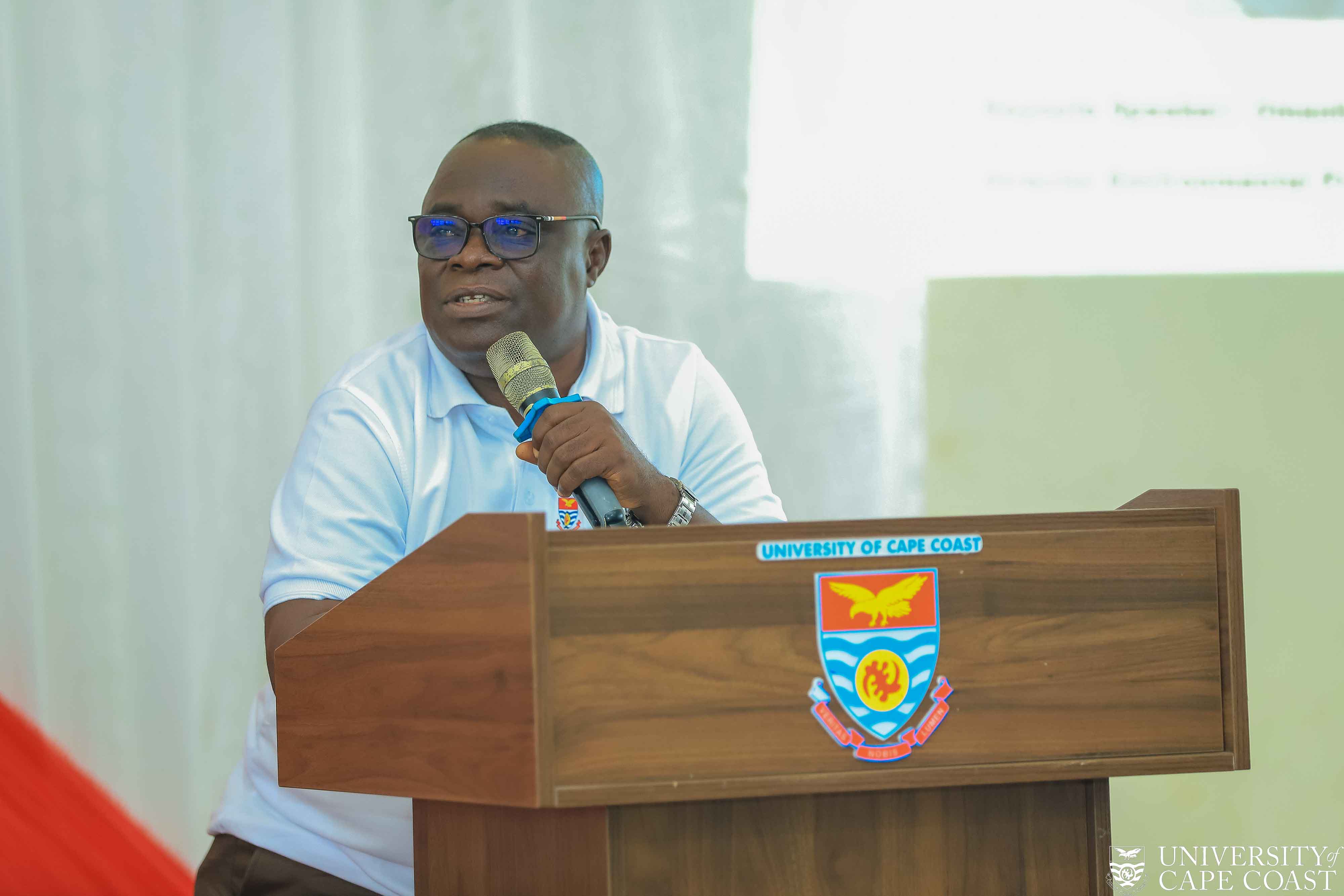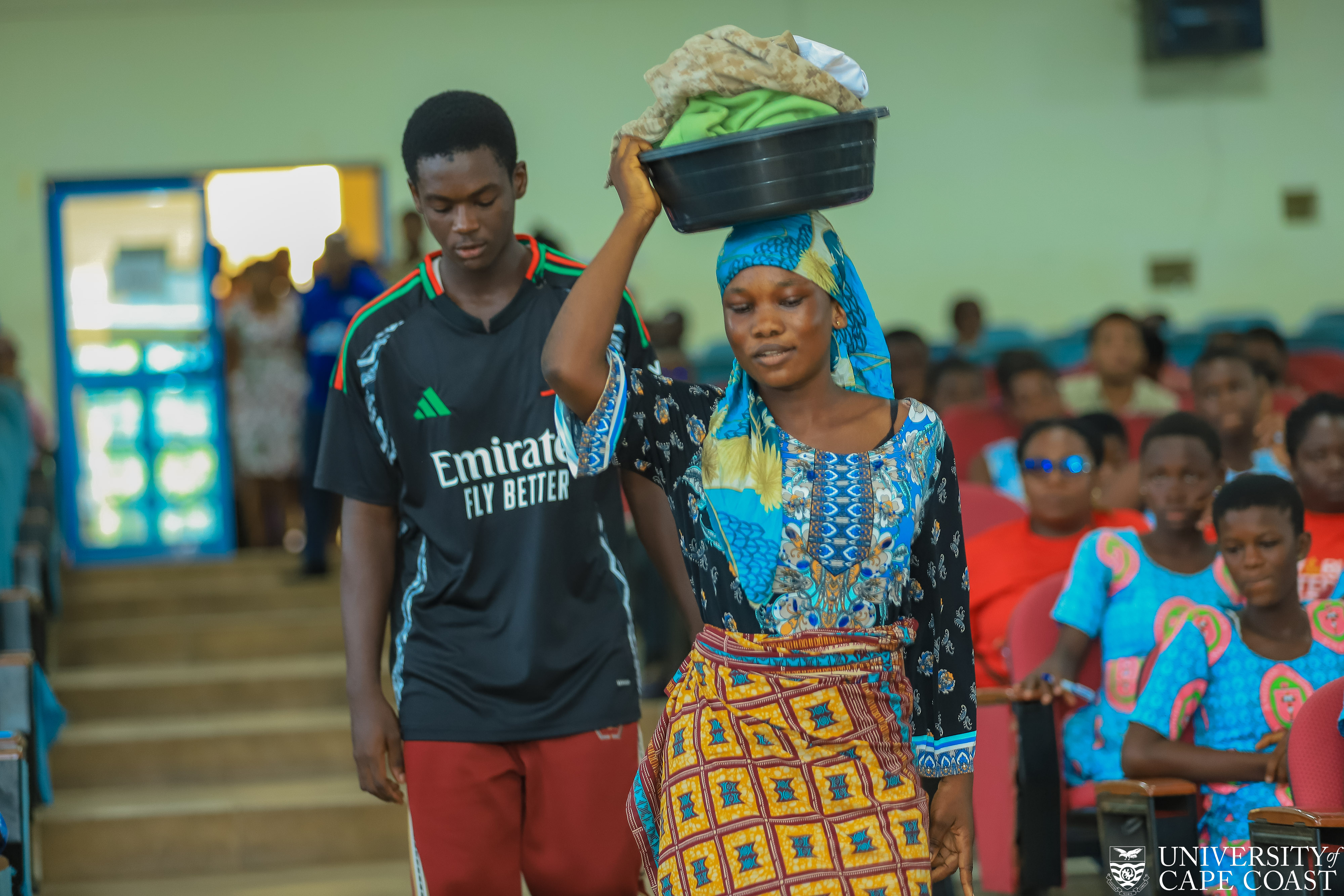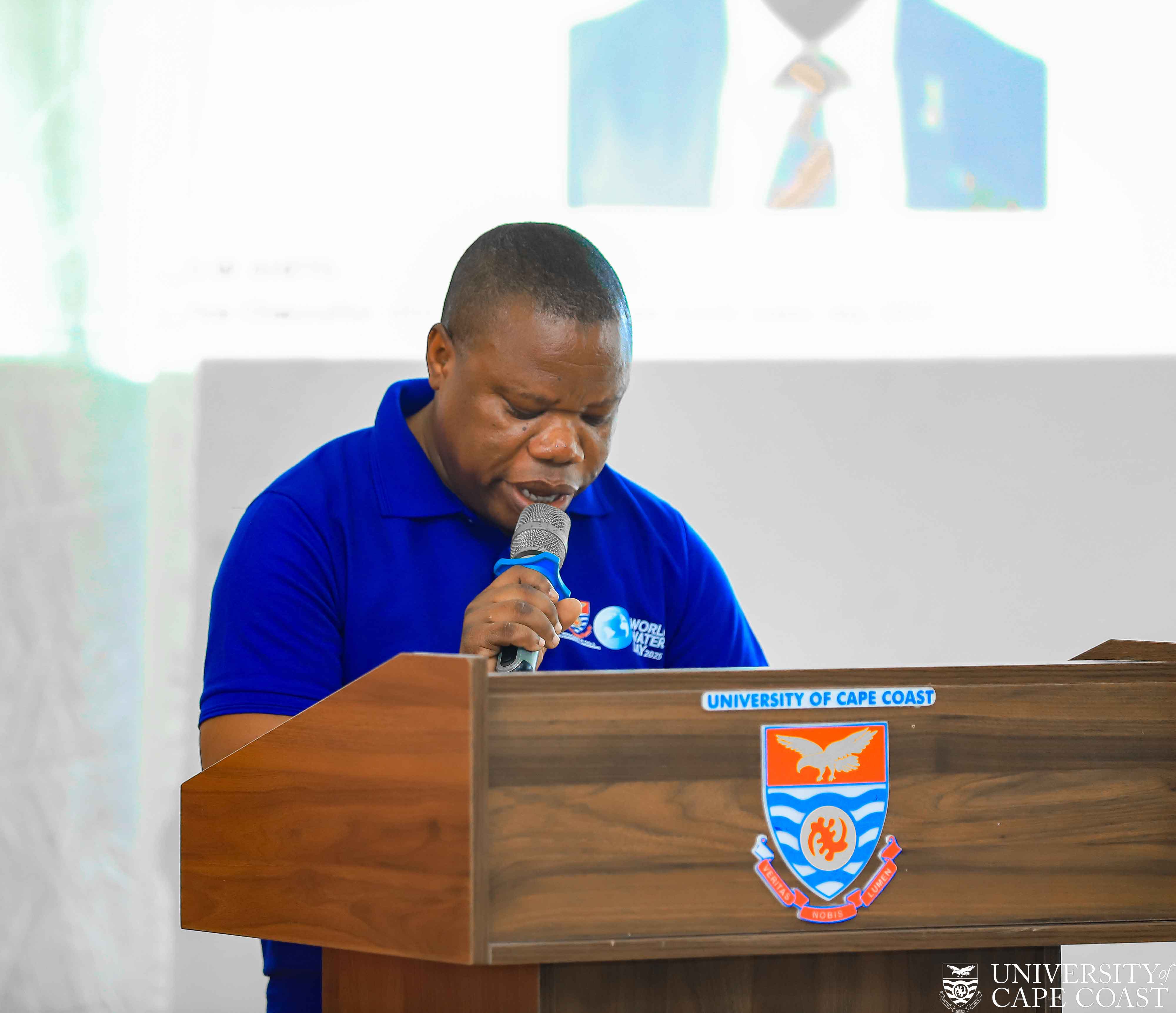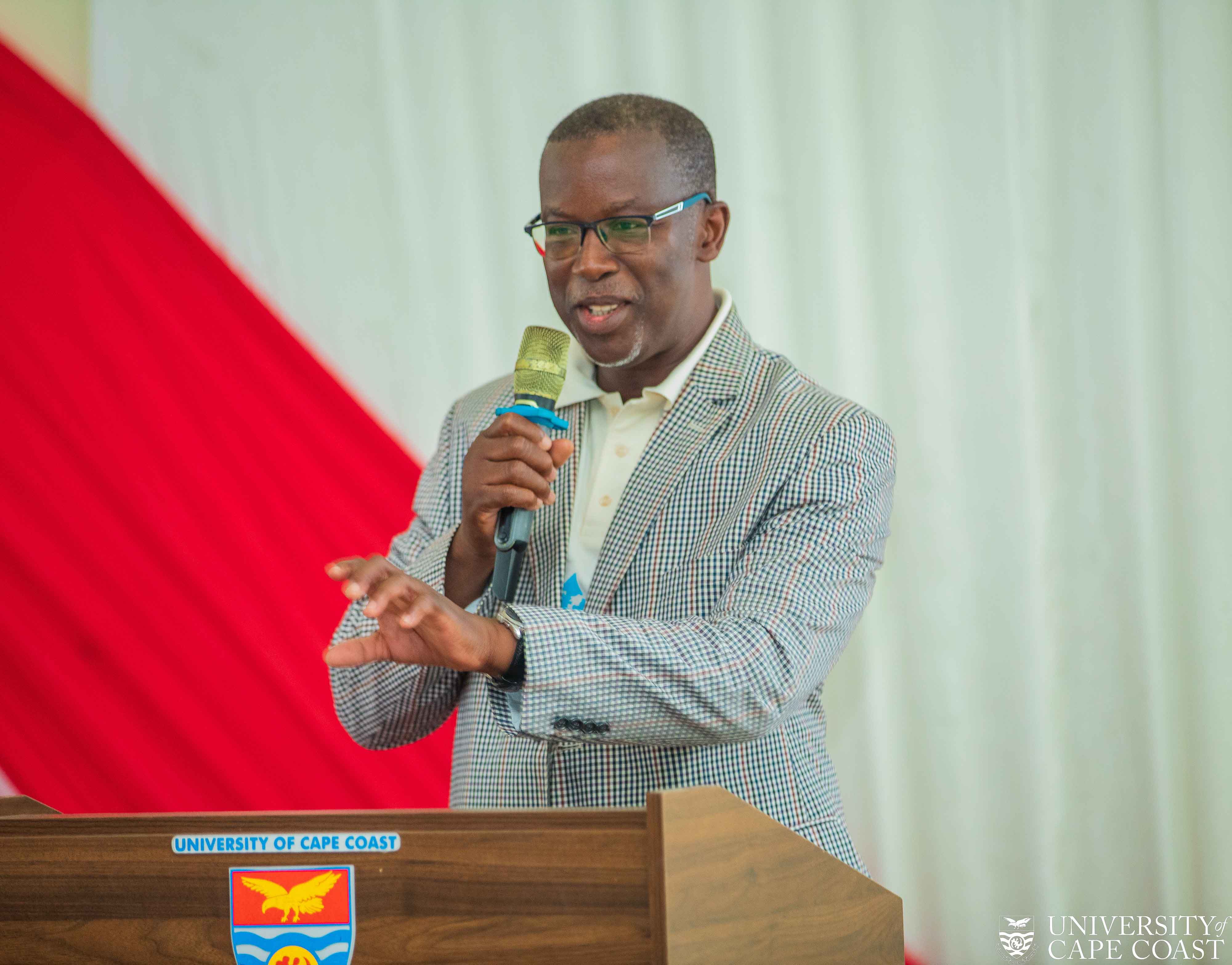The University of Cape Coast (UCC) has commemorated the 2025 World Water Day with a passionate call for collective action to protect water bodies.
The event, organised under the auspices of the School of Sustainable Engineering, brought together stakeholders, environmental experts, lecturers, administrators, students from tertiary and senior high schools, and members of the public to discuss the urgent need for sustainable water management.
The theme for the celebration, “Preservation Glaciers (Rivers)” highlights the significance of glaciers as natural freshwater reservoirs. It is estimated that glaciers store approximately 69% of the world's freshwater, gradually releasing it into rivers and lakes, which sustains drinking water supplies, agriculture, and hydroelectric power generation.
Speaking at the event, the Pro Vice-Chancellor, Prof. Denis Worlanyo Aheto, noted that the commemoration of World Water Day put a spotlight on the global water crisis and advocated sustainable water resource management.
Prof. Deni Aheto, speaking at the event
“Water is life, yet over 2.2 billion people worldwide still lack access to safe drinking water. Many communities, particularly in developing countries, rely on rivers, lakes, and underground water sources for survival,” he noted.
Prof. Aheto lamented the devastating impact of illegal mining, known locally as galamsey, on Ghana’s water bodies. He was worried that rivers and lakes were being polluted with harmful chemicals such as mercury and cyanide, making them unsafe for consumption and causing harm to aquatic life.
“The destruction of our water bodies is also depleting fish stocks and threatening biodiversity. If we do not take decisive action now, future generations will suffer dire consequences,” he warned.
The Pro Vice-Chancellor urged all stakeholders, including government agencies, educational institutions, and local communities, to join forces to protect Ghana’s water resources.
In his address, the Central Regional Director, Environment Protection Agency (EPA), Omanhene Kwaku Boateng, mentioned the recent cholera outbreaks, water shortages, and the alarming pollution levels in vital water bodies such as the Pra and Kakum rivers as urgent indicators of a looming crisis.
Omanhene Kwaku Boateng giving his address at the programme
“These incidents should serve as a clarion call for all of us to act now,” he noted and called for urgent action to address these pressing issues.
He urged the academic community to intensify research efforts and propose cost-effective methods for preserving and producing clean, hygienic water for both domestic and commercial use.
Mr. Boateng called upon students to take an active role in environmental conservation by initiating tree-planting projects along the banks of rivers and other water bodies. He said this would help restore degraded ecosystems and safeguard water resources for future generations.
A drama by students of Ghana National College
The Head of Department of Civil and Environmental Engineering, School of Sustainable Engineering, UCC, Prof. Albert Ebo Duncan, pointed out that while approximately 71 per cent of the Earth's surface was covered by water, only about 2.5 percent of this is freshwater, with the vast majority being saline.
He further noted that a significant portion of this freshwater was trapped in glaciers and ice caps, leaving less than one per cent readily available for human use.
“There is a saying that goes ‘water is life.’ If that saying is true, then all the water bodies would not be facing pollution, deforestation, extraction, and other threats,” he emphasized.
Prof. Duncan noted that the event was a reminder of the collective responsibility of all to ensure the sustainability and health of water resources for future generations.
The Provost of the College of Agriculture and Natural Sciences, Prof. Jojo Eghan, averred that water is essential to life, urging everyone to diligently protect this vital natural resource to ensure the preservation of life.
Remark by the Prof. Moses Jojo Eghan
Prof. Eghan who chaired the function advised that safeguarding water bodies was crucial for sustaining ecosystems and human health.

